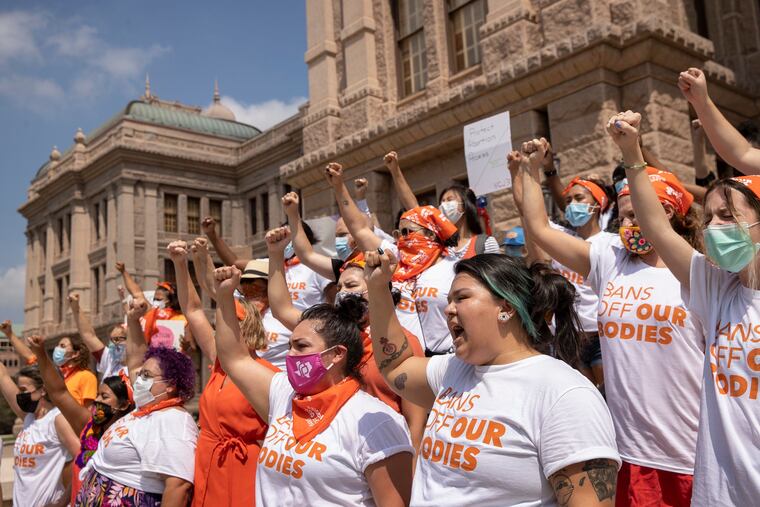The Justice Department asks a federal judge to block enforcement of Texas’ abortion law
The DOJ is seeking a temporary restraining order or injunction that would prevent Texas from enacting a law that bans nearly all abortions in the state.

The Justice Department has asked a federal judge to grant a temporary restraining order or injunction that would prevent Texas from enacting a law that bans nearly all abortions in the state, heating up a battle between the Biden administration and Texas Republicans, led by Gov. Greg Abbott.
The department argued in a court filing late Tuesday that Texas had adopted the law, known as Senate Bill 8, "to prevent women from exercising their constitutional rights."
The move comes less than a week after the Biden administration sued Texas to try to block the nation’s most restrictive abortion law, which bans the procedure as early as six weeks into pregnancy and allows private citizens to take legal action against anyone who helps a woman terminate her pregnancy.
In Tuesday’s emergency filing, the department argued that even though the Supreme Court has ruled that “a State may not prohibit any woman from making the ultimate decision to terminate her pregnancy before viability,” Texas has banned abortions months before viability — at a time before many women even know they are pregnant.
The brief said Texas had devised "an unprecedented scheme that seeks to deny women and providers the ability to challenge S.B. 8 in federal court. This attempt to shield a plainly unconstitutional law from review cannot stand."
The Texas law took effect Sept. 1, effectively ending most abortions in the nation's second-most-populous state, with no exceptions for rape or incest.
A dozen other states have passed legislation banning abortions after about six weeks into pregnancy. But federal judges have stopped those measures from taking effect, finding the laws inconsistent with Roe v. Wade, the landmark 1973 Supreme Court case guaranteeing the right to abortion before viability, and blocking states from imposing undue burdens on that decision. The Texas law is seen by many abortion rights advocates as the biggest threat to Roe since the decision.
S.B. 8 was designed to withstand preemptive legal challenges, barring enforcement by state government officials, whom abortion providers would typically target in a lawsuit. Instead, the law empowers private citizens to file civil lawsuits against anyone who helps a woman get an abortion after the six-week window. Individuals can receive a $10,000 award if their lawsuits are successful. They can sue abortion providers, clinic workers or those who help a woman pay for the procedure or drive her to a clinic.